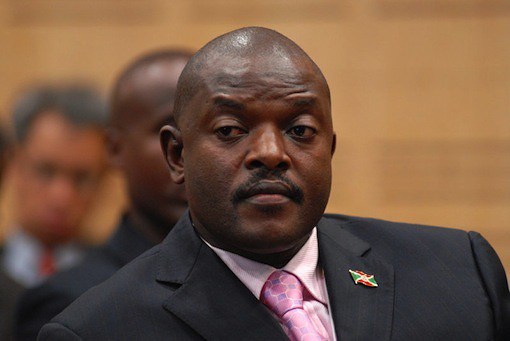
Burundi’s Nkurunziza wants to rule until 2034

Despite concerns that his desire might spark a new round of politically-related violence in Burundi, President Pierre Nkurunziza wants changes to the constitution that would let him rule until 2034.
In 2015 his decision to seek a disputed third term plunged the country into bloody protests that left an estimated 1,200 people dead. International Criminal Court judges last year authorized an investigation into allegations of state-sponsored crimes including murder, rape and torture.
Nkurunziza, who was recently declared by his supporters as Burundi’s “eternal supreme guide” is the latest African leader to seek the dismantling of term limits to stay in power.
Even before Nkurunziza over the weekend signed a decree setting May 17 for the referendum, opposition and human rights groups accused ruling party members of arresting activists campaigning against the proposed changes to the constitution. Those include extending the president’s term from five years to seven, which means Nkurunziza could rule for another 14 years when his current term expires in 2020.
Nkurunziza rose to power in 2005 following the signing of the Arusha accords, which ended a 13-year civil war in which about 300,000 people were killed. The accords also created a system of checks and balances in government and has been cited for calming the ethnic violence that has plagued the country since independence.
He was re-elected unopposed in 2010 after the opposition boycotted the vote. He argued that he was eligible for a third term in 2015 because lawmakers, not the general population, had chosen him for his first term, while critics called the move unconstitutional.
The May referendum “is a very dangerous project for the future of the country as much as the country is still in an unsolved conflict related to the third term of Pierre Nkurunziza,” Nshimirimana said.
More than 60 people have been arrested for allegedly campaigning against the referendum, he said, citing the arrests as a sign that the vote will not be free and fair.
Burundian authorities have repeatedly denied allegations of serious rights abuses, saying they are the victim of propaganda by exiles opposed to the government. The authorities say the East African nation is safe for everyone.
The country’s first vice president, Gaston Sindimwo, has dismissed the strong criticism last month by the U.N. human rights chief as a fabrication.
Many observers disagree.
Michel Kafando, the U.N. special envoy to Burundi, told the U.N. Security Council last month that the political situation continues to be tense.
“Only the majority party and some other allied groups are able to conduct unobstructed political activities,” he said. “Such a situation cannot be suitable for the organization of credible elections.”






